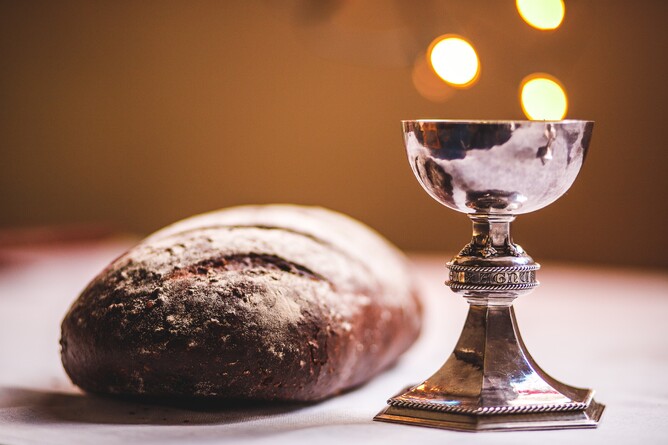By Mark Grace, CCCNZ Ambassador
1 Corinthians 11:27
Mo reira ki te kai he tetahi, ki te inu he i te kapu a te Ariki, ka whai hara ia i te tinana, i nga toto, o te Ariki.
O lenei, ai sē ‘ai i lenei areto, pe inu i le ipu a le Alii ma le faaletatau, e nofo sala o ia i le tino ma le toto o le Alii.
Whoever, therefore, eats the bread or drinks the cup of the Lord in an unworthy manner will be guilty concerning the body and blood of the Lord.
The Corinthian church’s communion had gone to custard. Discord and dissension better described the church’s communion. Paul was pretty direct in confronting them.
The Corinthians were eating their communion meal together in the same way the pagans did—divided.
They were eating their communion meal much like the wealthy family in Downton Abbey; the wealthy members of the church ate together in a sumptuous setting while the servants ate downstairs in the confines of the kitchen. It was the custom during pagan meals in Corinth that the rich and the poor didn’t eat together.
But Paul had strong words for the Corinthians about communion and community. Communion meals that divide the poor from the rest of the community aren’t communion meals at all. They are a despicable sight in God’s church.
In the context of the passage, eating communion in an "unworthy manner" could relate to eating with a lack of personal conviction, but it also refers to eating like the pagans did—forgetting the poor.
Eating in an "unworthy manner" meant digging into the meal in ways that deepen the divisions between rich and poor. It meant eating the meal in a way that would continue to divide the community.
The Corinthian church was a glorious mix of rich and poor, young and old, men and women, gentile and Jew. Beneath Paul’s strong language, we see his belief that the communion meal is a real expression of the unity that Jesus’ death and resurrection has created.
When we eat the bread and drink the cup, we share in the once-for-all sacrifice of Jesus Christ.
It is easy to see that when we take communion while we neglect some of the people in our church, or harbour divisions and dissension in the body of Christ, the result is the denigration of all that Christ has done for us in his death and resurrection.
Therefore, when share communion in our churches, we should make sure that the meal is a celebration of the unity that Christ won for us.
The meal isn’t only about me. It’s about us. It’s about Christ and the salvation he achieved for the whole community.



